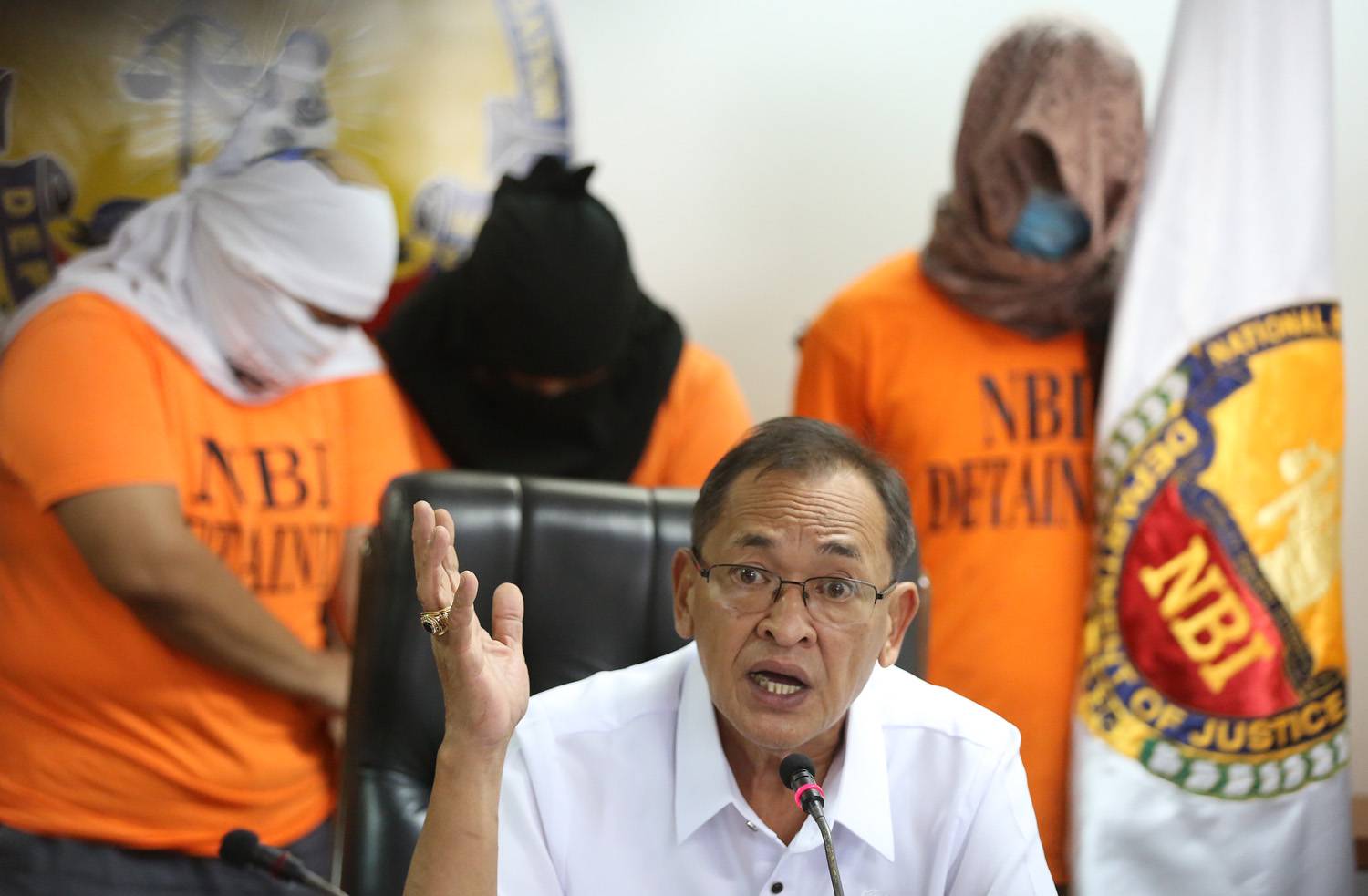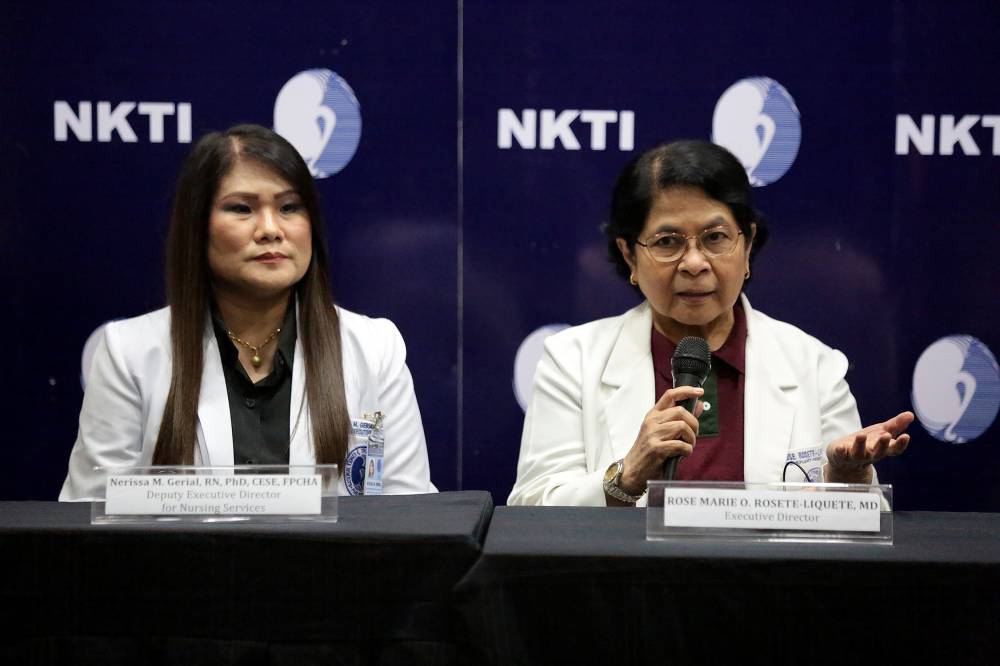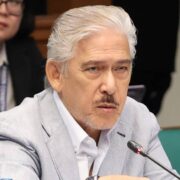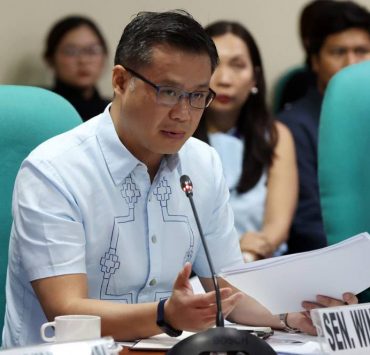NKTI: No basis yet to sanction nurse linked by NBI to organ trafficking

Officials of the National Kidney and Transplant Institute (NKTI) maintained on Wednesday that no illegal organ donations were taking place in the state-run specialty hospital despite allegations linking one of its nurses to a kidney trafficking scheme.
They cited the stringent screening process they follow for transplant procedures, and stressed that the nurse being accused had no access to organ donors and recipients.
At a press conference, the NKTI confirmed that Allan Ligaya, a staff nurse identified by the National Bureau of Investigation as the leader of an organ trafficking ring in Bulacan province, was an employee.
But there is no basis yet to impose any disciplinary action on Ligaya, as the NBI has yet to coordinate with the hospital regarding the allegations, it said.
Ligaya has been working at the hospital for the last 23 years as a staff nurse—not head nurse as reported earlier by the NBI—under the Ambulatory and Endoscopy Center, said Nerissa Gerial, the NKTI deputy executive director for nursing services.
Ligaya also had no prior bad record and even reported for work on Tuesday when news broke out about his alleged involvement in organ trafficking.

Not a surgeon
“During an executive meeting with him on Tuesday, he said that the allegations against him were not true. He said he had no involvement in the scheme and he did not know the other persons arrested by the NBI,” said Dr. Rose Marie Rosete-Liquete, executive director of the NKTI.
“He could not do the operations himself because he is not a surgeon. His work also does not give him access to organ donors and recipients since the unit he works with is involved in serving patients needing minor surgical, urological and endoscopic procedures, and not transplant procedures,” she added.
Rosete-Liquete said the NKTI spoke with the NBI on Tuesday, “even telling them that Ligaya was here if they needed to interview him on his involvement or to arrest him, but none of the officers came here.”
She said the hospital would turn the employee over to the authorities if warranted.
Ligaya, who was off duty on Wednesday, assured his superiors he would not go into hiding and still report for work on Thursday.
But the nurse has been asked to explain in writing why he should not be sanctioned.
“We are deeply concerned that these criminal activities are still happening right under our noses despite all the strict processes we have implemented,” Rosete-Liquete said.
“We really need to strengthen our deceased organ donation system as this is the only solution to stop this human organ trafficking scheme. With this, patients do not need to beg their relatives or friends, or worse, resort to the black market, to find a donor organ,” she said.
The NKTI officials said they had checked whether any of the victims or suspects named by the NBI underwent transplant procedures at the hospital itself, but found no record of them.
They said they were also not aware of the three doctors and three hospitals being investigated by the NBI for allegedly conspiring with Ligaya.

Referral center
The NKTI is the referral center for organ transplant procedures, but it is not privy to the process of other hospitals, the officials said.
“The patients can choose whichever hospital they want to undergo kidney transplant. We cannot answer how strict these other hospitals are in conducting their organ donation and transplant screening,” said Dr. Romina Danguilan, the NKTI’s deputy executive director for medical services.
“We are appealing to all the other transplant facilities to be very strict in their regulations so we can prevent these kinds of donated organs for sale activities,” she added.
At present, the country has 38 transplant centers, 11 of which are government hospitals and the rest are privately run.
On Tuesday, the NBI filed criminal complaints against four persons involved in the organ trafficking operation: Ligaya, who “remains at large”; Angela Atayde, Marichu Lomibao and Dannel Sicat, who were all arrested in an NBI operation on July 11.
P200,000 for a kidney
Nine victims, age 25 to 35, were rescued from a rented house in Barangay Tungkong Mangga in San Jose del Monte City, Bulacan, where the trafficked donors were kept, according to the NBI.
Four of them had already donated one of their kidneys and were paid P200,000 each, the NBI said.
Complaints have been filed against the three arrested suspects for qualified trafficking in persons, a nonbailable offense.
One of suspects, Atayde, claimed that Ligaya, who mainly served as a fixer, told them that the donation and transplant processes were legal, including the tedious screening process for living kidney donors not related to the recipients.
Under DOH Administrative Order No. 124, series of 2002, the sale and purchase of kidney organs by kidney vendors is prohibited.
















